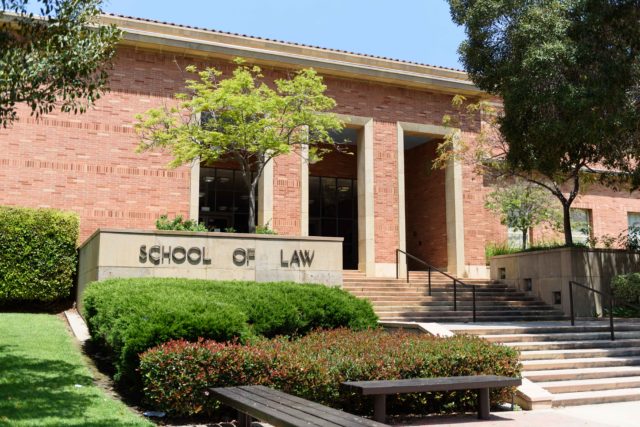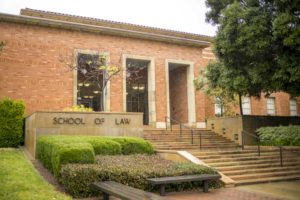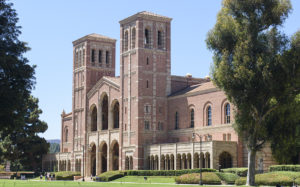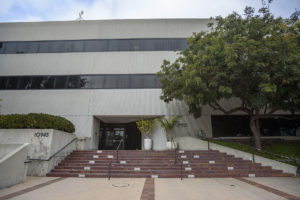This post was updated April 23 at 9:55 p.m.
The Resnick Center for Food Law and Policy faculty reflected on the center’s accomplishments as it reaches its 10-year anniversary.
The Resnick Center is a program at the UCLA School of Law focused on teaching and research in the field of food law. The center publishes books and articles that provide legal guidance in food law, offers related classes to law students and undergraduates, and hosts conferences that bring together experts from food law and related disciplines.
The center also partners with the United Nations’ Food and Agriculture Organization in research and advisory projects.
Food law combines agricultural, health, international, labor and climate law when approaching modern food systems, said Michael Roberts, executive director of the Resnick Center. Evolving from agricultural law, which emphasized legal research about food producers, food law addresses legal questions surrounding food quality and safety, pesticide use, the food system’s environmental impact, the use of genetic modification and advertising surrounding food, he added.
“The idea was to come closer to the consumer, number one, so it’s not just about the producer, it’s about the consumers and everybody in between, and number two, to create a more holistic approach to thinking about these issues,” Roberts said.
The Resnick Center is one of only a handful of programs across the country exclusively dedicated to food law. Roberts said this created a challenge as the center opened when the field itself was still emerging, as the center operated without guarantees of funding sustainability or success.
Roberts added that the center operates a mailing list to have discussions with academics who teach or are interested in food law. He said the list has grown from around 20 members when the Resnick Center opened to 177 professors now.
“There was an open question as to whether it would be sustainable,” Roberts said. “That, I think, is no longer a question.”
The lack of study in food law created an opportunity for the Resnick Center to help define the field.
Margot Pollans, a professor at Pace Law School’s Food Law Center and a former fellow at the Resnick Center, said the growth of the center played an important role in establishing food law as a distinct and valuable academic branch. The Resnick Center published the first textbook on food law in 2018 and has also created several legal guides on the discipline.
“One of the primary functions that places like the Resnick Center is broadening the understanding that food law is a discipline that merits its own specific attention,” Pollans said.
As the Resnick Center helped facilitate the growth of food law, scholarship in the field increased and improved, said Diana Winters, deputy director of the Resnick Center.
Winters added that the center’s scholarly efforts have brought together food experts from around the world in conferences and academic projects, including a recently published book on international food law edited by Roberts with more than 30 chapters from different experts.
“The quality of the food law scholarship has also improved significantly,” Roberts said “It used to be that you’d see an opinion piece or a policy paper. But now, I think the scholarship has grown much more significant. And we’re seeing really well-written books and articles and histories.”
Winters said the Resnick Center also maintains ongoing partnerships with other organizations, including UCLA’s Rothman Family Institute for Food Studies and law students helping undergraduates appeal rejected CalFresh applications.
The emergence of food law accompanies changes in law firm practices as a greater number of firms hire individual lawyers for their specializations in specific fields, Roberts said. The specific scholarship of the Resnick Center allows more students to become involved in the subject, he added.
Roberts said the center hopes to continue its interdisciplinary focus in the future. While already involved in several cooperative projects, he said the Resnick Center’s programs hope to work more with academics in other fields and other organizations with similar goals as they continue their work.
“I used to measure my success by these three books and other publications,” Roberts said. “But I’m recognizing now that the impact on the students is truly a legacy and equal to whatever else we accomplish in the way of publication and networking and collaboration.”






Comments are closed.